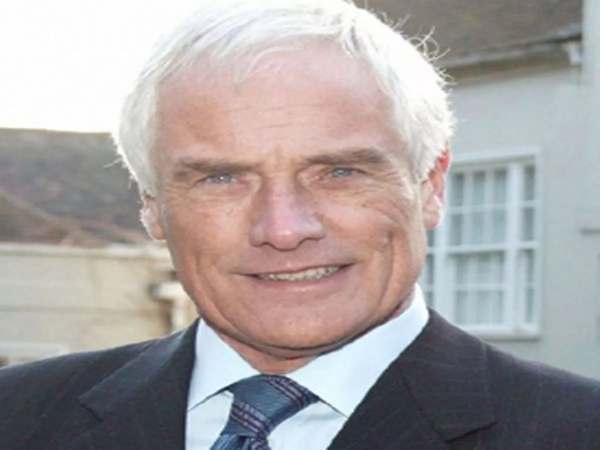Robert Kilroy Silk: From Parliament to Television and Beyond
A Controversial Political Voice and Media Personality

Robert Kilroy Silk is an English former politician, academic, and broadcaster whose career journey has spanned academia, politics, television, and even reality TV. Known for his outspoken nature, Kilroy Silk served as a Labour Member of Parliament before moving into broadcasting, where his daytime talk show Kilroy became a household name for nearly two decades. Later, he re-entered politics through the European Parliament, where his influence on Euroscepticism led many to call him the “Godfather of Brexit.” His life and career reflect a unique blend of intellectual rigor, political ambition, and controversial public commentary.
Early Life and Academic Career
Robert Michael Kilroy Silk was born on 19 May 1942 in Birmingham, England. Originally born Robert Michael Silk, he later adopted the surname Kilroy-Silk after his mother remarried. His father died during World War II, which left a significant mark on his early life.
Educated at a secondary modern school, Kilroy Silk’s academic determination allowed him to pass the 11-plus exam, opening the path to higher education. He went on to study politics and economics at the London School of Economics, where he developed a strong foundation in political theory and social policy.
Following his graduation, Kilroy Silk began teaching political science. From 1966 to 1974, he served as a lecturer at the University of Liverpool. During this period, he also authored works on socialism and political thought, including the book Socialism Since Marx, which highlighted his academic grounding in leftist politics. This decade as an academic built his reputation as a serious political thinker before he stepped into the political arena.
Robert Kilroy Silk in Politics
Entering Parliament
In February 1974, Robert Kilroy Silk entered Parliament as the Labour MP for Ormskirk. Following constituency boundary changes in 1983, he represented Knowsley North until 1986. As an MP, Kilroy Silk positioned himself as a strong advocate for penal reform, civil liberties, and social justice.
His time in Parliament was marked by both ambition and conflict. He rose quickly within the Labour ranks and was appointed a Shadow Home Affairs spokesman, but internal disagreements within the Labour Party limited his long-term parliamentary future. By the mid-1980s, Kilroy Silk’s relationship with the Labour leadership became strained, leading to his resignation in 1986.
Transition to Broadcasting
Instead of continuing in politics, Kilroy Silk pursued a different kind of public influence. He left the Commons in 1986 to host a new daytime BBC talk show, Kilroy, which aired until 2004. This career pivot allowed him to reach millions of viewers and gain a different kind of recognition—one that was not confined to the walls of Westminster.
Broadcasting Career: The Kilroy Show
Kilroy became one of the most recognizable talk shows on British television. Launched in 1986, the program invited everyday citizens and public figures to debate issues ranging from family and personal struggles to pressing political and social debates. Kilroy Silk’s confrontational yet charismatic style made the show both engaging and polarizing.
The format gave voice to ordinary people while challenging experts and politicians, blurring the line between entertainment and serious discourse. For nearly two decades, Kilroy Silk was a fixture on daytime TV screens across the UK.
Controversy and Cancellation
However, his television career ended in controversy. In 2004, a Sunday Express column by Kilroy Silk referred to Arabs in inflammatory terms, sparking accusations of racism. The backlash led the BBC to cancel Kilroy, ending his 18-year run as a broadcaster. This controversy not only closed the chapter on his television career but also set the stage for his return to politics.
Return to Politics: UKIP and Veritas
Joining UKIP
After leaving broadcasting, Kilroy Silk aligned himself with the UK Independence Party (UKIP). His high-profile presence boosted the party’s visibility during the 2004 European Parliament elections, in which he was elected as an MEP representing the East Midlands. His ability to attract media attention helped UKIP achieve unprecedented success, a phenomenon often described as the “Kilroy effect.”
Founding Veritas
Kilroy Silk’s ambitions, however, clashed with the UKIP leadership. After an unsuccessful attempt to take over the party, he split from UKIP in 2005 and launched his own party, Veritas. The party promoted populist policies including a flat tax and strict immigration controls. Despite a bold launch, Veritas quickly faltered and was nicknamed “Vanitas” by critics, who saw it as a vanity project. Kilroy Silk stepped down as leader within a year, and the party dissolved shortly after.
Later Public Life and Media Appearances
Even after leaving mainstream politics, Robert Kilroy Silk remained in the public eye. In 2008, he appeared on the reality show I’m a Celebrity…Get Me Out of Here!, although he was the first contestant to be voted out. He also made appearances on comedy and panel shows such as Have I Got News for You, where his combative persona often sparked memorable television moments.
Robert Kilroy Silk Age
As of 2023, Robert Kilroy Silk is 81 years old. His long career across academia, politics, broadcasting, and media has made him a recognizable figure in British public life for over five decades.
Robert Kilroy Silk Family
Robert Kilroy Silk married Jan Kilroy in 1965, and the couple has two children. Despite his often controversial public persona, Kilroy Silk has generally kept his family life private. His wife played a supportive role during both his political and broadcasting careers, and his children have largely stayed out of the media spotlight.
Robert Kilroy Silk Net Worth
Estimating Robert Kilroy Silk’s exact net worth is challenging due to the variety of his careers. His earnings would have included his salary as a Member of Parliament, substantial income from nearly two decades as a BBC presenter, as well as his time as a Member of the European Parliament. While there are no verified figures, estimates place his net worth in the range of a few million pounds, reflecting his long-standing presence in both politics and broadcasting.
Robert Kilroy Silk Wikipedia
The Robert Kilroy Silk Wikipedia page provides a comprehensive overview of his life and career. It outlines his early years, academic background, parliamentary service, broadcasting career, political controversies, and his later life in the public eye. Wikipedia remains one of the most consulted resources for readers looking to understand his multifaceted career and influence on British public life.
Legacy and Influence
Robert Kilroy Silk’s legacy is complex. On one hand, he is remembered as an articulate and intellectual politician who made real contributions to debates on civil liberties and penal reform during his time in Parliament. On the other hand, his outspoken views, particularly those that sparked controversy, have left a divisive mark on his public reputation.
As a broadcaster, he innovated daytime television by creating a platform where ordinary citizens could challenge experts and politicians. His show shaped how talk shows would develop in the UK, paving the way for more audience-driven programming.
Politically, Kilroy Silk’s role in boosting UKIP during the early 2000s helped push Euroscepticism into the mainstream. While his personal political ventures ultimately failed, his influence is often cited as part of the longer trajectory that culminated in the 2016 Brexit referendum.
Conclusion
Robert Kilroy Silk’s life is a story of ambition, reinvention, and controversy. From a university lecturer to a Labour MP, from a television presenter to a European politician, he has worn many hats over the decades. His ability to command attention, whether in Parliament, on television, or in the European Parliament, made him one of the most recognizable figures in British public life.
Today, he is seen as a pivotal yet polarizing character whose career embodies the intersections of politics, media, and public opinion in late 20th- and early 21st-century Britain. Whether admired or criticized, Robert Kilroy Silk’s impact on British society cannot be denied.



